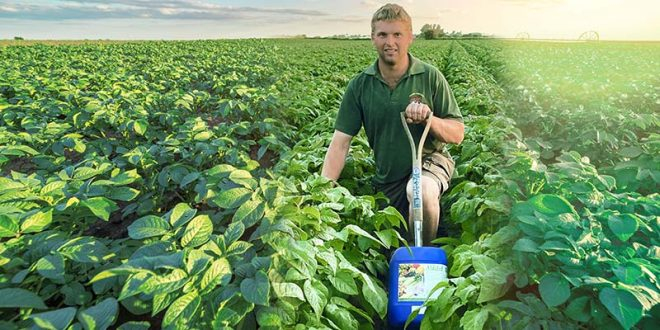Growers without access to irrigation systems are being encouraged to follow the lead of one Lincolnshire farmer who has embraced seaweed to help his crop fend off the effects of heat stress.
Since 2018, the Louth Potato Company has used a seaweed-based biostimulant to counter the impact of extreme weather conditions. Ryan Wrisdale has been applying Algifol regularly to his winter wheat, pumpkins, and potatoes. He says the results have been amazing.
“In 2018, we had a very wet winter and spring, followed by drought conditions over the summer. As we don’t have an irrigation system, we could not water our 20-acre crop of early and second early potatoes. After a few weeks, the plants were suffering from stress due to no water and were not growing. We were introduced to Algifol, which we applied with every blight spray on a seven-day interval. This meant that the plant was fed through the leaves with Algifol applied little and often. This kept the plant alive, and the potatoes were able to gain more weight and size, resulting in a bonus of an increased yield after we thought it was too late. We also gained a good-sized potato which was amazing as at one point we thought we were going to have a disastrous crop. The potato crop yield averaged between seven and ten tons to the acre that year.”
Today, the Louth Potato Company is so happy with the results Algifol produces; the company uses it on all of its crops. The biostimulant is manufactured by NeoMed-Pharma in Germany using seaweed gathered from the North Atlantic. The seaweed is dried and refined to maximize its wealth of trace elements, vitamins, enzymes, amino acids, carbohydrates, polyuronides and growth-regulating plant hormones.
Applied by knapsack, trailed or mounted sprayers or planes, Algifol is used worldwide on various crops, including bananas, grapes, tea, potatoes and cereals.







